Voice Recognition Systems: Transforming Communication
At WOIC Technologies, our innovative voice recognition systems are designed to revolutionize how businesses and individuals interact with technology. By leveraging the power of artificial intelligence, these systems offer a highly efficient way to process spoken language into actionable insights. Whether you aim to automate customer support, streamline workflows, or enhance accessibility, our solutions provide the reliability and precision you need to thrive in a competitive landscape.
Why Choose WOIC Technologies for Voice Recognition?
Our voice recognition systems deliver accurate, fast, and adaptable solutions to meet diverse business needs. We prioritize performance and user experience, ensuring our systems are tailored to your specific requirements.
Key Features:
- Enhanced Accuracy: Designed to understand multiple languages and dialects with high precision.
- Seamless Integration: Easily compatible with existing business software, applications, and APIs.
- Real-Time Processing: Converts spoken language into text or commands instantly.
- Customizability: Tailored to specific industries, including healthcare, education, and e-commerce.
- Scalable Solutions: Designed to grow alongside your business.
Applications of Voice Recognition Systems
1. Customer Support Automation
Enable 24/7 customer service with AI-powered virtual assistants that process and respond to customer inquiries in real-time.
2. Accessibility for All Users
Enhance accessibility for users with disabilities by enabling voice-operated commands for web applications and devices.
3. Workforce Optimization
Simplify workflow automation by integrating voice recognition into team collaboration tools, meeting transcription software, and CRM systems.

The Process Behind Our Voice Recognition Technology
- Voice Input: Users interact with the system by speaking naturally.
- Audio Analysis: Advanced AI algorithms process and interpret the audio input.
- Text Conversion: Speech is converted into text, commands, or relevant data for further action.
- Action Execution: The system delivers responses, executes commands, or stores the extracted data for analysis.
Our robust AI models ensure high-speed processing, even for complex audio inputs with background noise or diverse accents.
Why Voice Recognition Matters
Implementing a reliable voice recognition system can:
- Reduce operational costs by automating repetitive tasks.
- Improve user satisfaction through faster response times.
- Increase accessibility for diverse user groups.
- Boost productivity by minimizing manual data entry.
Contact Us Today!
Partner with WOIC Technologies to integrate cutting-edge voice recognition systems into your business. Reach out to us via email at [email protected] or call us at +91 7652074246 to explore the best AI-powered solutions for your needs.
Frequently Asked Questions
1. What industries benefit most from voice recognition systems?
These are versatile and can be applied across industries such as healthcare, education, e-commerce, telecommunications, and finance. They enable businesses to automate tasks, enhance accessibility, and streamline workflows.
2. How accurate are WOIC Technologies’ voice recognition systems?
Our systems achieve exceptional accuracy, with the ability to recognize various accents, languages, and speech patterns. They also adapt to industry-specific terminologies to ensure precise results.
3. Can the voice recognition system handle multiple languages?
Yes, our solutions are designed to support multiple languages and dialects, making them ideal for global businesses or multicultural user bases.
4. Is it possible to integrate your voice recognition technology into existing platforms?
Absolutely! Our systems are highly adaptable and can seamlessly integrate with your existing software, APIs, and devices.
5. Are voice recognition systems secure for sensitive data?
Yes, we prioritize data privacy and security. Our systems adhere to strict protocols and compliance standards, ensuring the safe processing of sensitive information.
At WOIC Technologies, we are committed to delivering innovative and adaptable voice recognition systems tailored to your needs. Whether you’re looking to improve customer interactions or streamline internal processes, our AI-powered solutions provide unmatched efficiency and precision.
Contact us today and take the first step towards transforming communication in your business!



